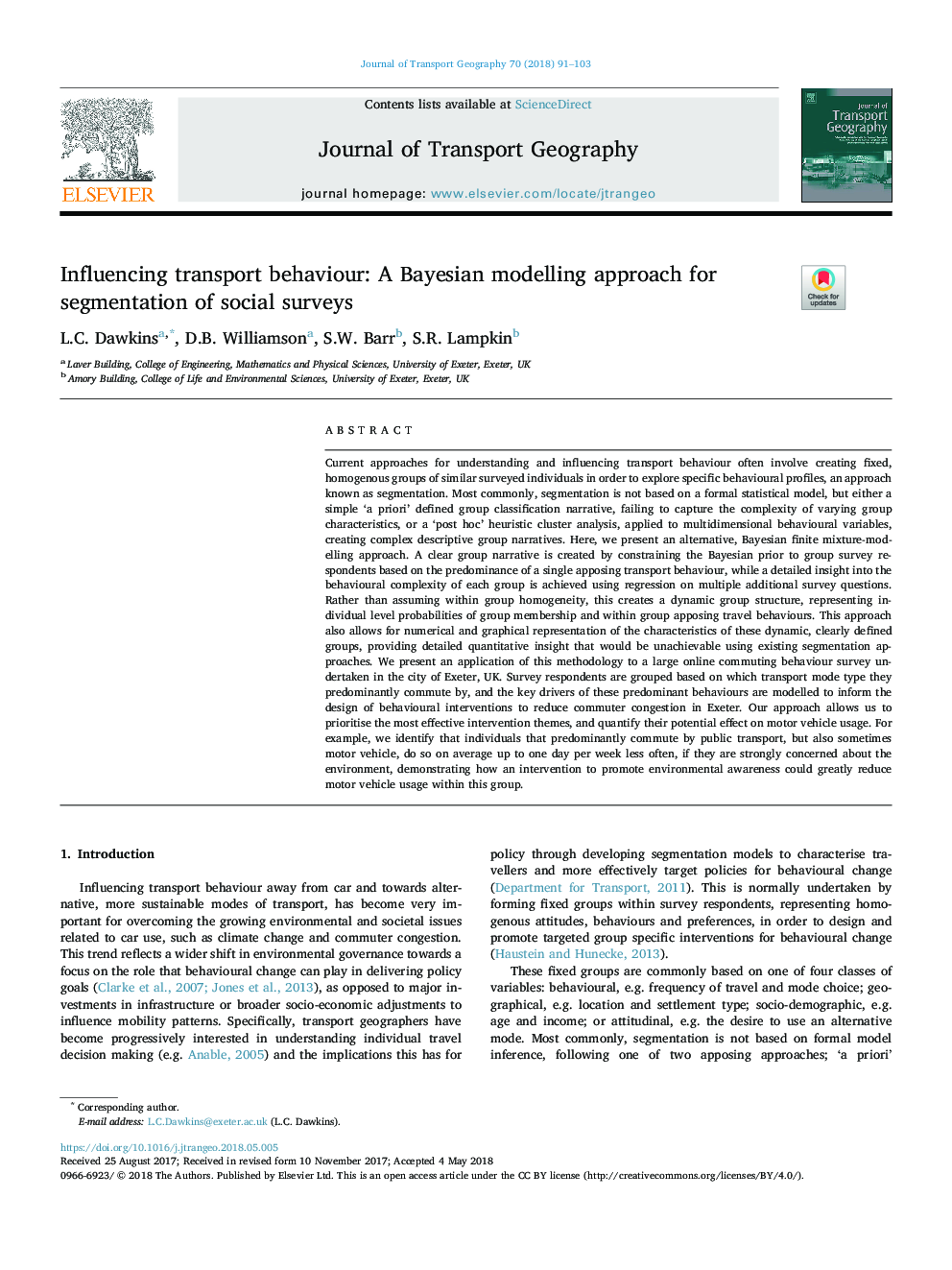| کد مقاله | کد نشریه | سال انتشار | مقاله انگلیسی | نسخه تمام متن |
|---|---|---|---|---|
| 7484985 | 1485397 | 2018 | 13 صفحه PDF | دانلود رایگان |
عنوان انگلیسی مقاله ISI
Influencing transport behaviour: A Bayesian modelling approach for segmentation of social surveys
ترجمه فارسی عنوان
تاثیر رفتار حمل و نقل: رویکرد مدل سازی بیزی برای تقسیم بندی نظرسنجی های اجتماعی
دانلود مقاله + سفارش ترجمه
دانلود مقاله ISI انگلیسی
رایگان برای ایرانیان
موضوعات مرتبط
علوم زیستی و بیوفناوری
علوم محیط زیست
علوم زیست محیطی (عمومی)
چکیده انگلیسی
Current approaches for understanding and influencing transport behaviour often involve creating fixed, homogenous groups of similar surveyed individuals in order to explore specific behavioural profiles, an approach known as segmentation. Most commonly, segmentation is not based on a formal statistical model, but either a simple 'a priori' defined group classification narrative, failing to capture the complexity of varying group characteristics, or a 'post hoc' heuristic cluster analysis, applied to multidimensional behavioural variables, creating complex descriptive group narratives. Here, we present an alternative, Bayesian finite mixture-modelling approach. A clear group narrative is created by constraining the Bayesian prior to group survey respondents based on the predominance of a single apposing transport behaviour, while a detailed insight into the behavioural complexity of each group is achieved using regression on multiple additional survey questions. Rather than assuming within group homogeneity, this creates a dynamic group structure, representing individual level probabilities of group membership and within group apposing travel behaviours. This approach also allows for numerical and graphical representation of the characteristics of these dynamic, clearly defined groups, providing detailed quantitative insight that would be unachievable using existing segmentation approaches. We present an application of this methodology to a large online commuting behaviour survey undertaken in the city of Exeter, UK. Survey respondents are grouped based on which transport mode type they predominantly commute by, and the key drivers of these predominant behaviours are modelled to inform the design of behavioural interventions to reduce commuter congestion in Exeter. Our approach allows us to prioritise the most effective intervention themes, and quantify their potential effect on motor vehicle usage. For example, we identify that individuals that predominantly commute by public transport, but also sometimes motor vehicle, do so on average up to one day per week less often, if they are strongly concerned about the environment, demonstrating how an intervention to promote environmental awareness could greatly reduce motor vehicle usage within this group.
ناشر
Database: Elsevier - ScienceDirect (ساینس دایرکت)
Journal: Journal of Transport Geography - Volume 70, June 2018, Pages 91-103
Journal: Journal of Transport Geography - Volume 70, June 2018, Pages 91-103
نویسندگان
L.C. Dawkins, D.B. Williamson, S.W. Barr, S.R. Lampkin,
